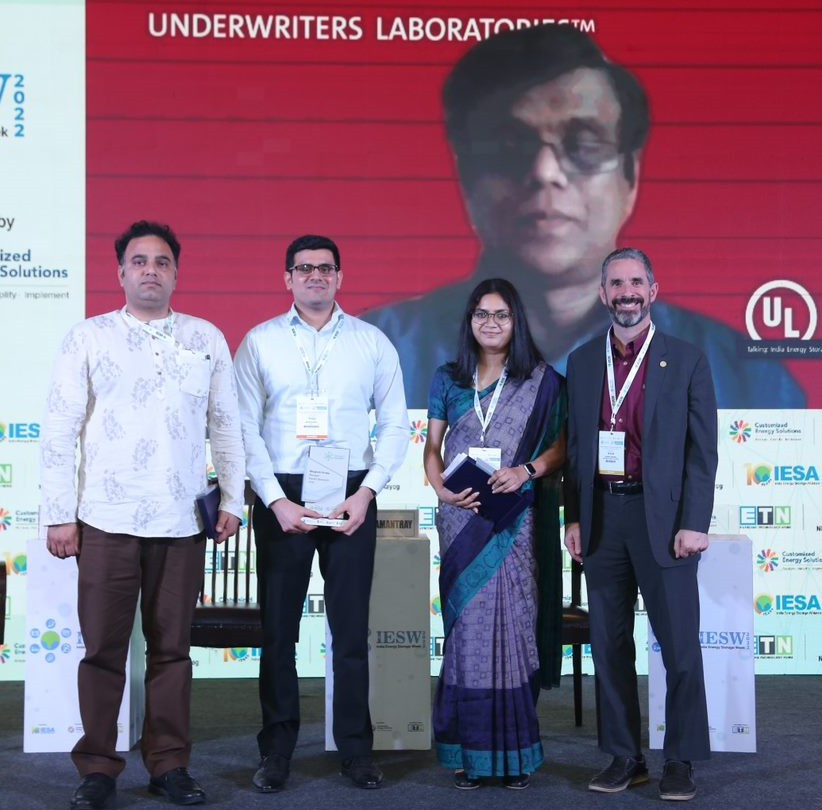In general, all batteries undergo degradation over time. There are also certain applications where the operational conditions of energy drain and recharging cycles in batteries are very demanding, resulting in limited service-life and rapid degradation after certain period. For instance, EV batteries have significantly lower service life cycle than the life span of the vehicles themselves, making the end-of-life (EoL) batteries incapable of providing adequate power and torque requirements that customers demand.
Such used batteries are either disposed of in landfills or incarcerated, both of which are harmful to environment and life forms. With the demand for new batteries reaching new heights and talks on judicious and wise use of battery metals owing to supply chain problems and sustainability getting attention in recent times, reusing and recycling of EoL batteries seem inevitable in the years to come.
"Although EoL batteries are unfit for EVs, they can still hold about 60-70 percent SoC and can be readily used for other applications like that of renewable energy storage, grid stabilization, stationary storage, EV fast charging in the absence of high-power grid, and so on", said Shilpi Samantray, Senior Manager and Lead – Electric mobility at Ola Mobility Institute (OMI).
She noted that the second-life battery applications are at a very nascent stage, even globally, as the technologies and know-hows are just evolving. "The industry lacks consensus on reuse and recycling. We need to step up R&D investments on this area and help evolve right technologies and standards", she added.
Speaking on high-quality graphite and other rare minerals recovery from EoL and dead batteries, Dr. Parveen Kumar, Head – Product Development, Exigo Recycling, said, "This isn't regular metallurgy or metal recycling. Different types of batteries chemistries make recycling and metal extraction different".
Parveen shared the success story of Exigo's metals extraction from EV batteries, using mechanical and hydrometallurgical technologies. Some of the metals extracted includes lithium carbonate, nickel sulphate, manganese sulphate, cobalt sulphate, battery-grade graphite, and so on.
Stressing on the importance of repurposing lithium-ion batteries (LIBs) at the end of their first lives, V Manjunath, Standards Manager – South Asia and Sub-Saharan Africa, Underwriters Laboratories Inc., said that these batteries are not readily recyclable, and unlike lead-acid batteries which have a recyclable value, entities disposing li-ion batteries end up paying to recycle them.
"There are no established or accepted standards for recycling of LIBs as of now. We need to kindle the interests of industries in safe repurposing and handling or storage of used batteries, and evolve essential standards even for safe operation in end-use and performance as per intended end-use", he observed.
He further suggested that India should encourage safe repurposing of EoL batteries under 'Atmanirbhar Bharat' as per UL 1974 bi-national consensus standards and other standards including IEC 63338, IEC 63330, IEC 62933-4-4, and IEC 62933-5-3. "BIS is very supportive in considering our UL 1974 standards in this regard", he said.
Commenting on IESA's efforts, Dr. Debi Prasad Dash, Executive Director – IESA, said, "This is the right time to spearhead industry's efforts and attention towards safe reuse and recycling of batteries. We cannot sideline this anymore; else we will face big challenges in future. We at IESA have schedules three working group meeting in the next 4-6 months along with Underwriters Laboratories on the subject of recycling to devise roadmaps and strategies".
Read More

